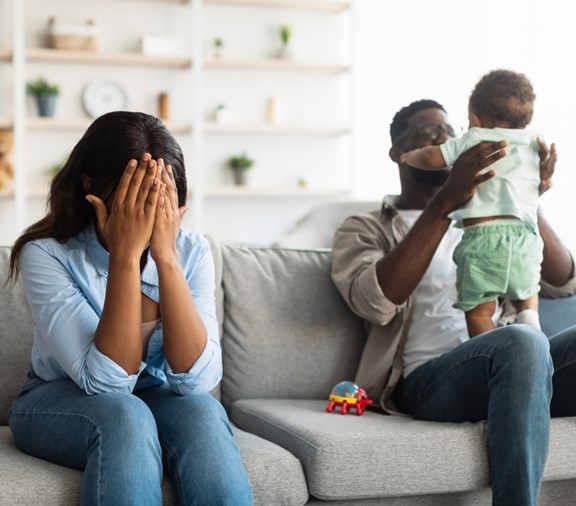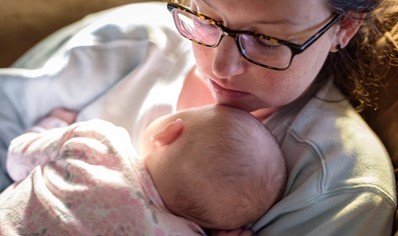
What New Moms Should Know About Depression
April 8, 2024
After giving birth, it’s normal to feel some “moodiness.”
You will probably lose sleep while caring for your new baby. In addition, your hormone levels drop and your body starts producing breast milk.
These changes can be hard on your body and mind. Almost all mothers will have times where they feel weepy, cranky, worried, or sad.
If you get support and can catch up on sleep, your mood swings should improve after a week or two.
However, if you develop depression after giving birth, recovery is much more likely with the help of professionals such as a therapist or doctor and the support of friends and family.
People can have depression at any time of life. When it occurs during the weeks or months after the birth of a baby, it is called “postpartum depression.”
What is postpartum depression?
Depression is a medical illness that affects the way you think and how you feel and behave. It is a serious illness that can make it very hard to care for and enjoy your new baby.
The good news is depression can be treated. You should talk to your doctor right away if you notice you have any signs of postpartum depression. The sooner you get help, the sooner you can get back to feeling like yourself.
What are the signs and symptoms?
If you have postpartum depression, you might be feeling:
- Sad or hopeless.
- Irritable or angry with family and friends.
- Nervous or panicky.
- Like you are losing control of yourself.
- Worried that you might hurt your baby or yourself.
Other warning signs are:
- Having a hard time bonding with your baby.
- Eating or sleeping too much—or too little.
- Extreme lack of energy and difficulty performing daily tasks (like cooking, cleaning, or showering).
- Loss of interest in activities you used to enjoy.
- Feeling like you are not a good mother.
- Having upsetting thoughts that won’t leave your mind.
Who is most likely to have postpartum depression?
According to Postpartum Support International, some women are more likely than others to develop the illness after having a baby.
You have higher risk if:
- You have a thyroid imbalance or diabetes.
- You have had depression, anxiety, or postpartum depression in the past.
- Your family members have had depression, anxiety, or postpartum depression.
- You do not have enough help in caring for the baby.
- You are struggling with money.
- You are fighting with your partner.
- Pregnancy, giving birth, or breastfeeding were hard for you.
- There were other major changes recently, such as death of a loved one, moving, or job loss.
- You had twins or triplets.
- Your infant was in the Neonatal Intensive Care (NICU).
If you think you might have postpartum depression, it’s important to seek help right away.
Need help for depression, anxiety, or other concerns? Call your doctor or contact Carelon Behavioral Health.
You do not need approval for individual, family, or group therapy. Also, you do not need a referral from your regular doctor.
English/Spanish interpreter services available 24 hours a day, 7 days a week.
HEALTHfirst (STAR Medicaid): 1-800-945-4644
KIDSfirst (CHIP): 1-800-945-4644


